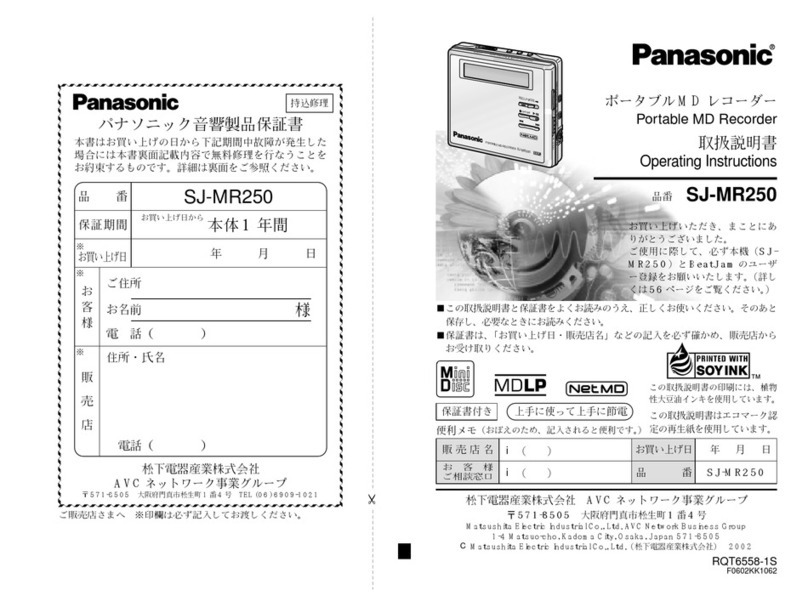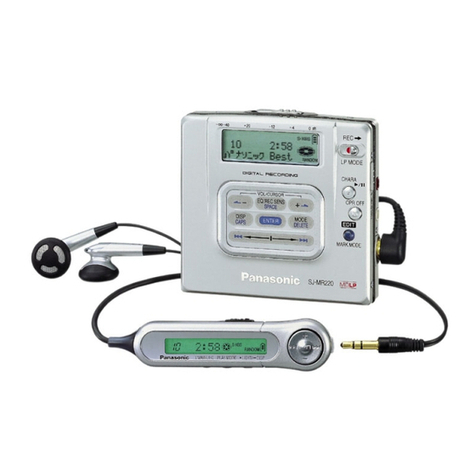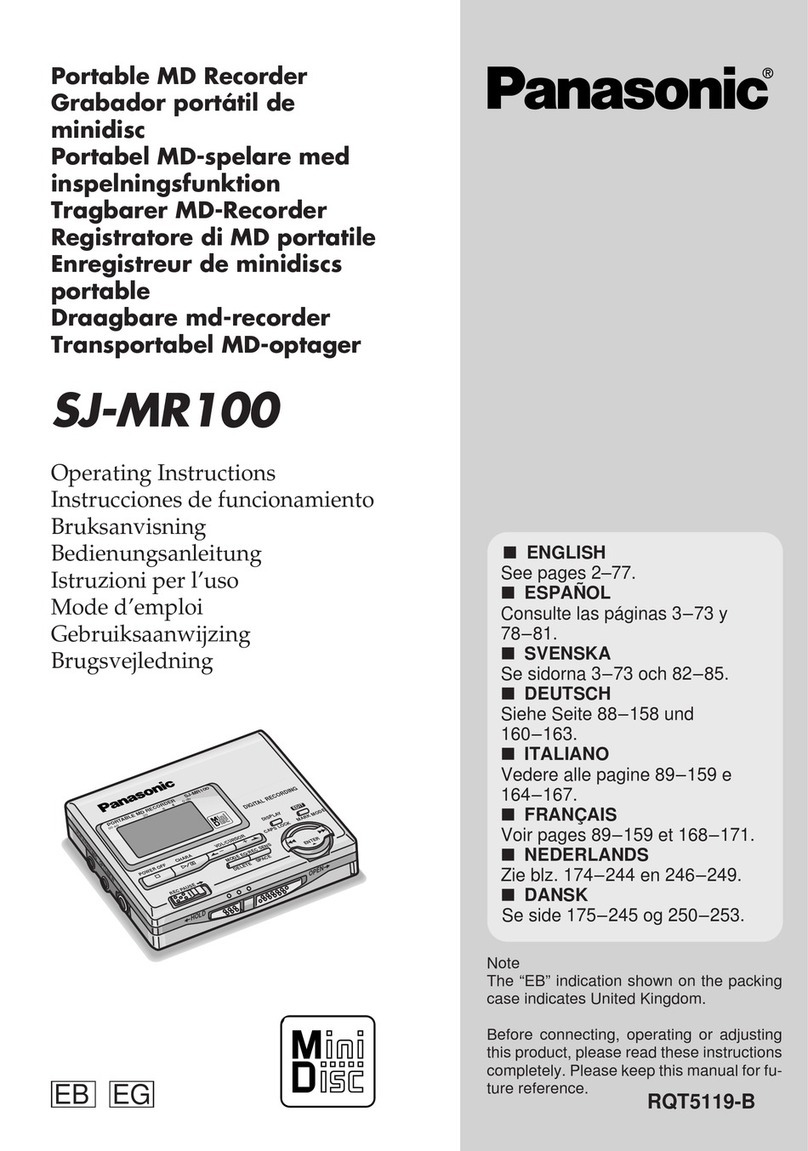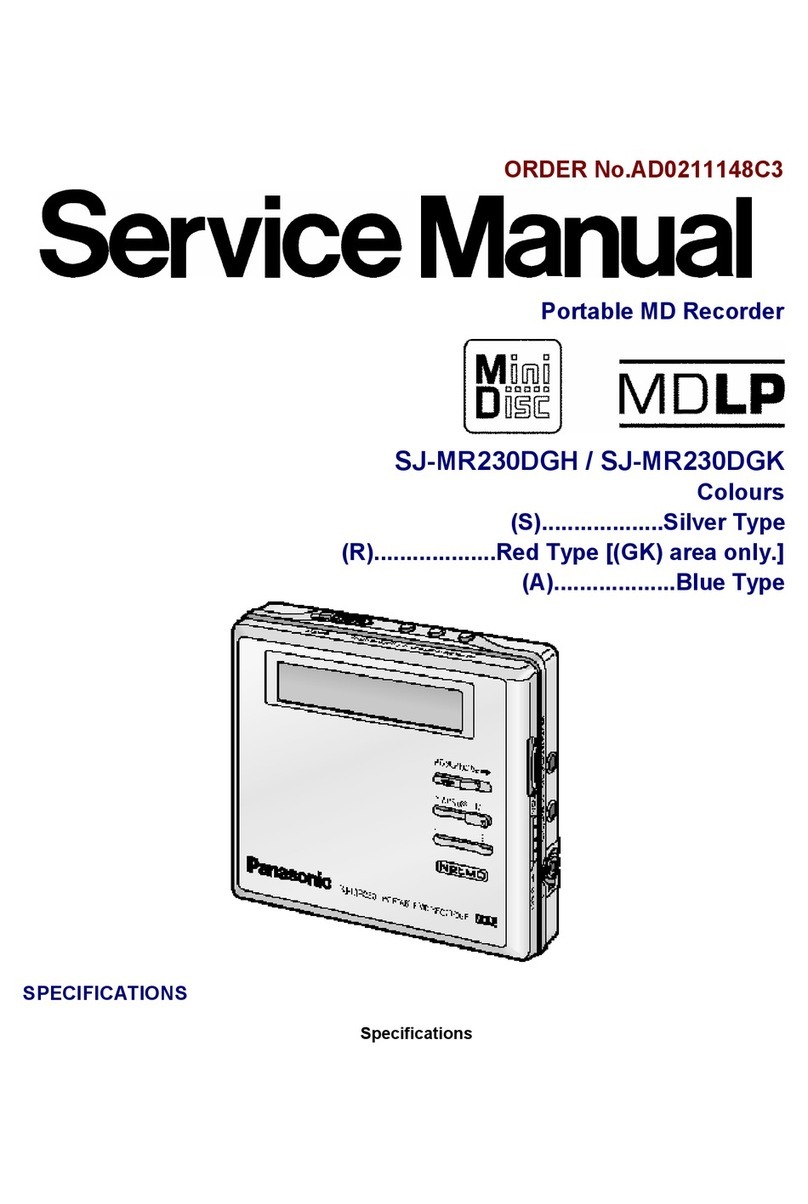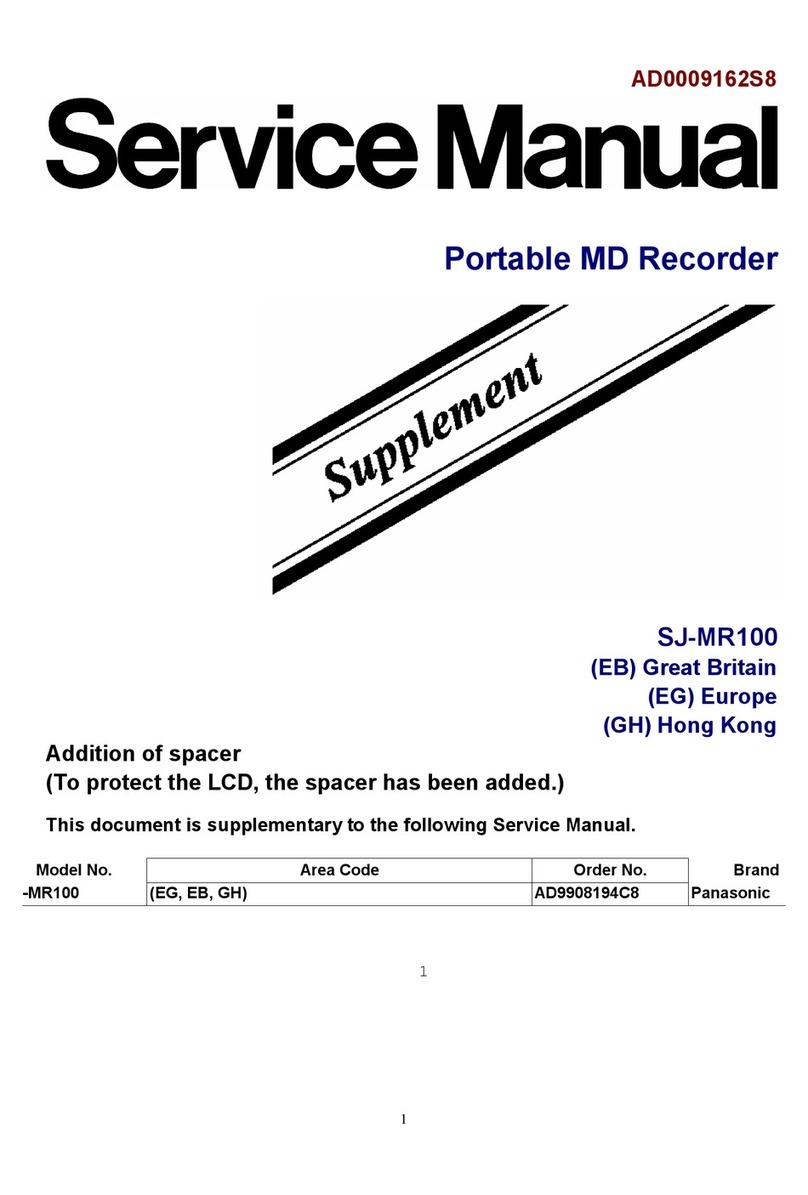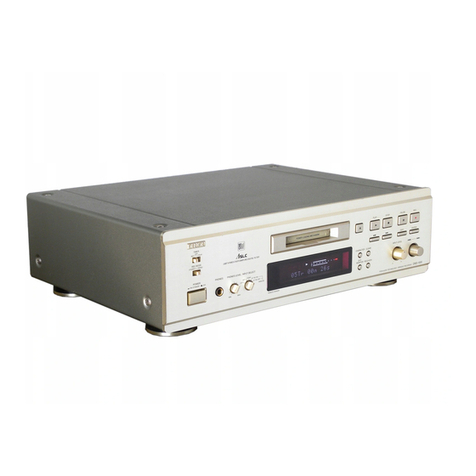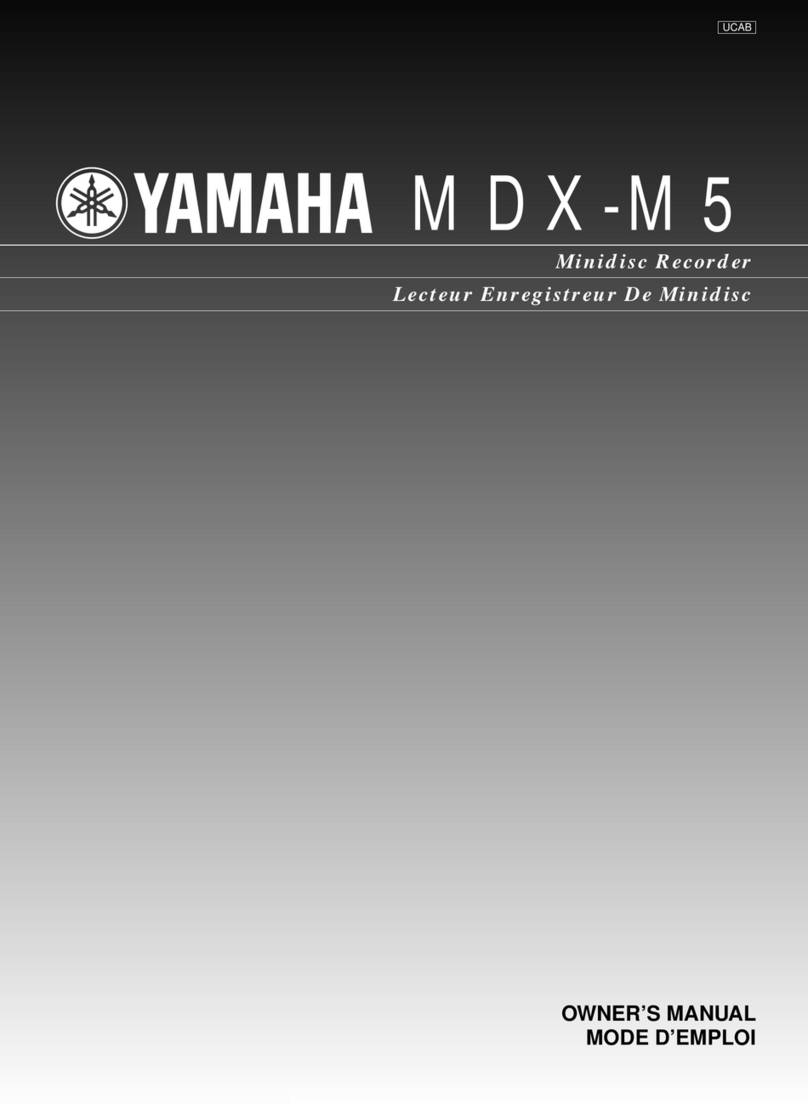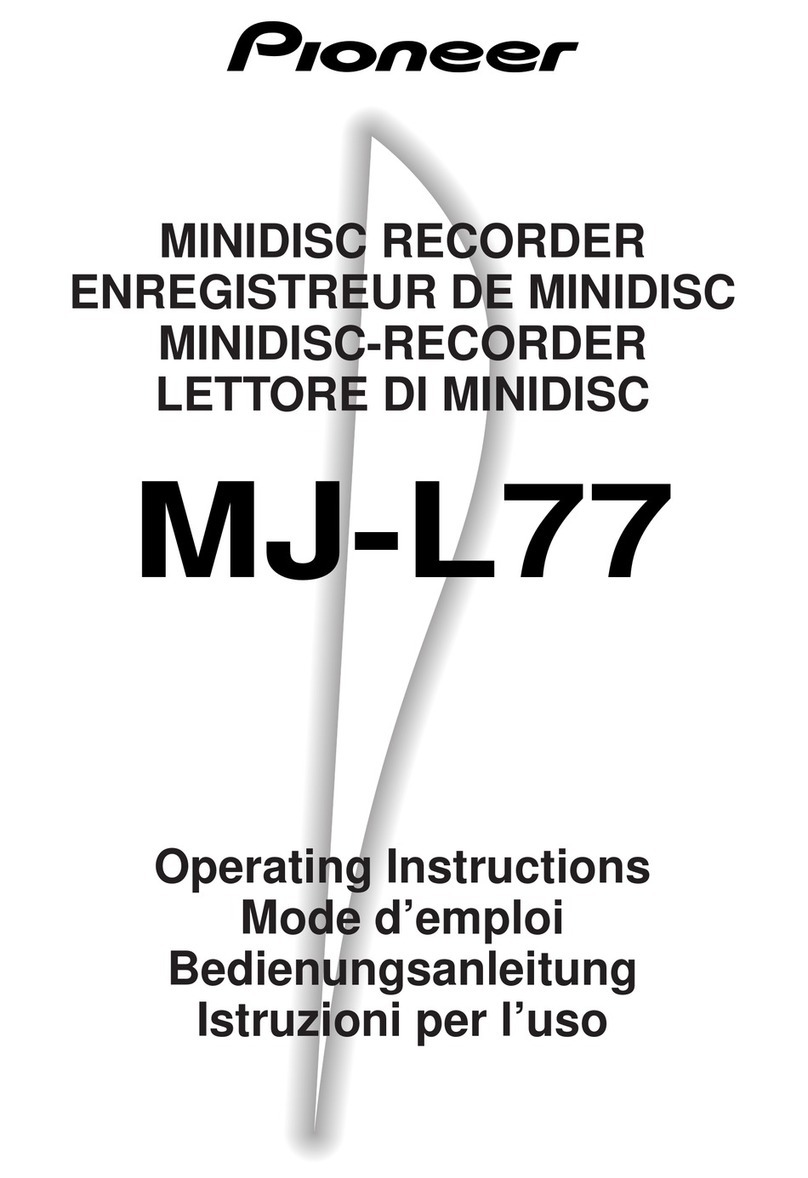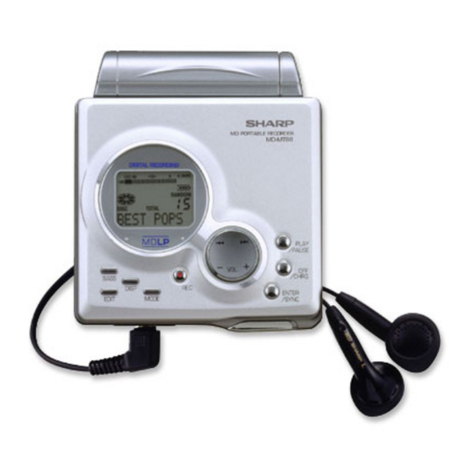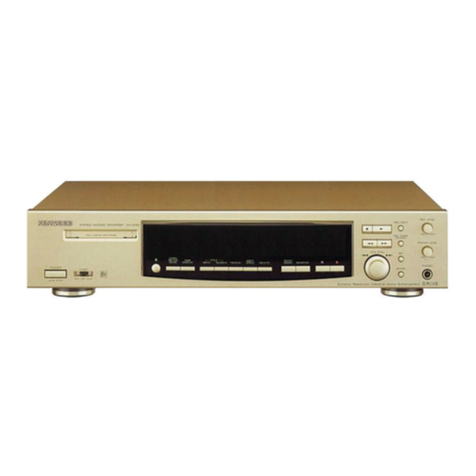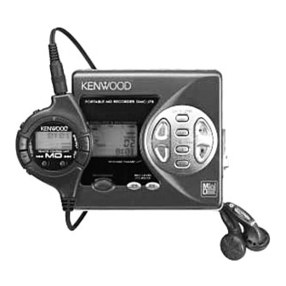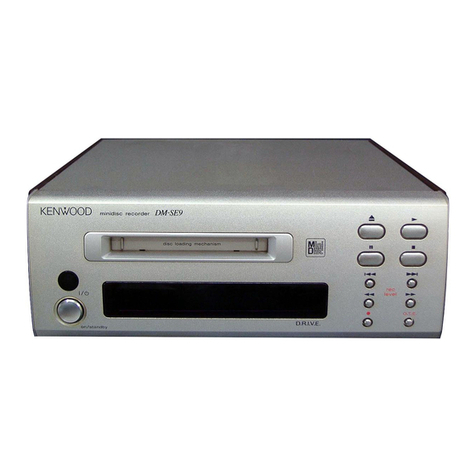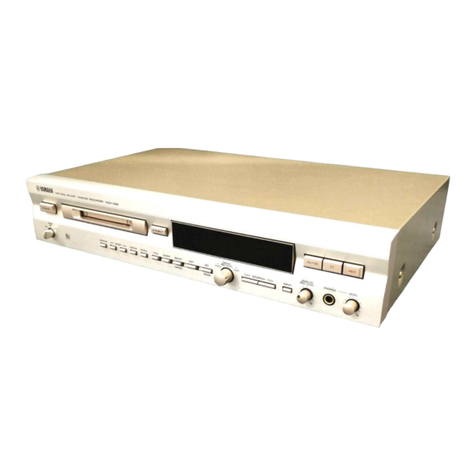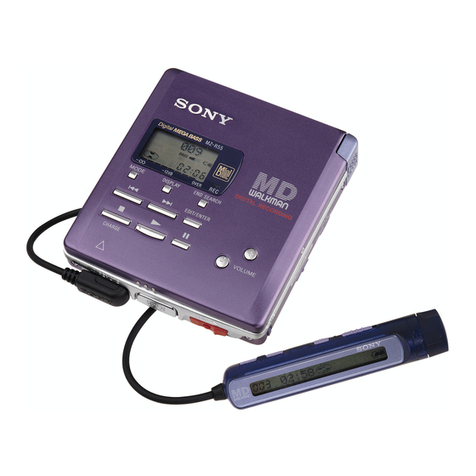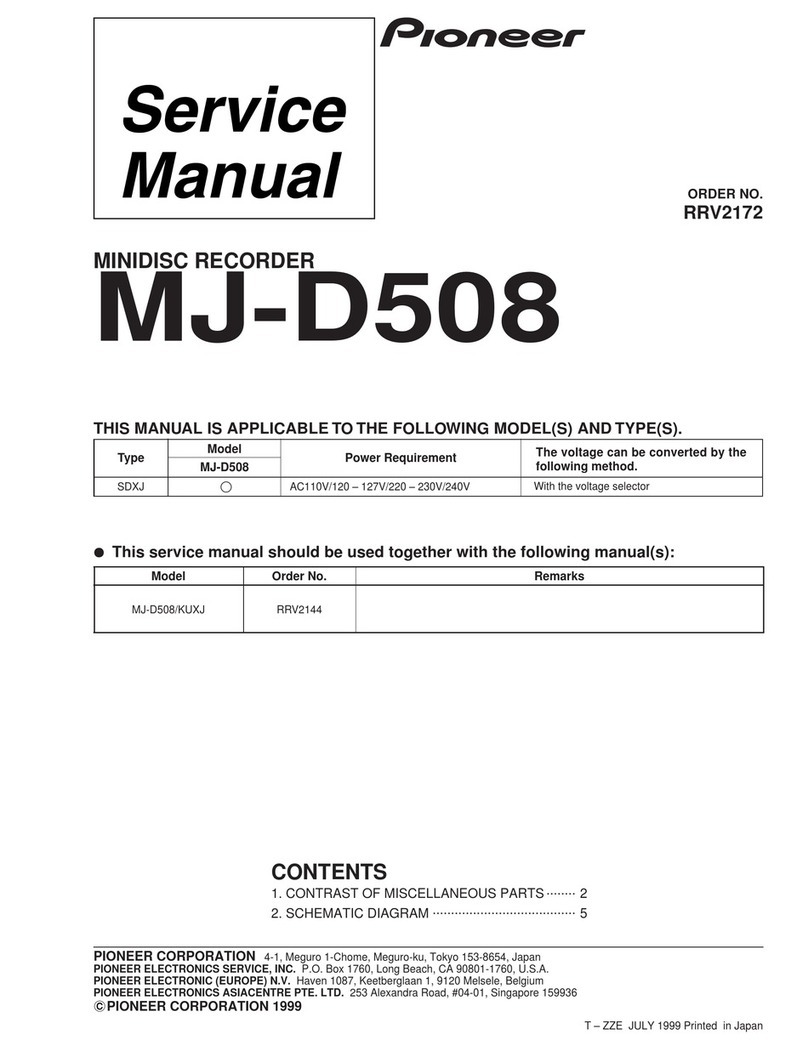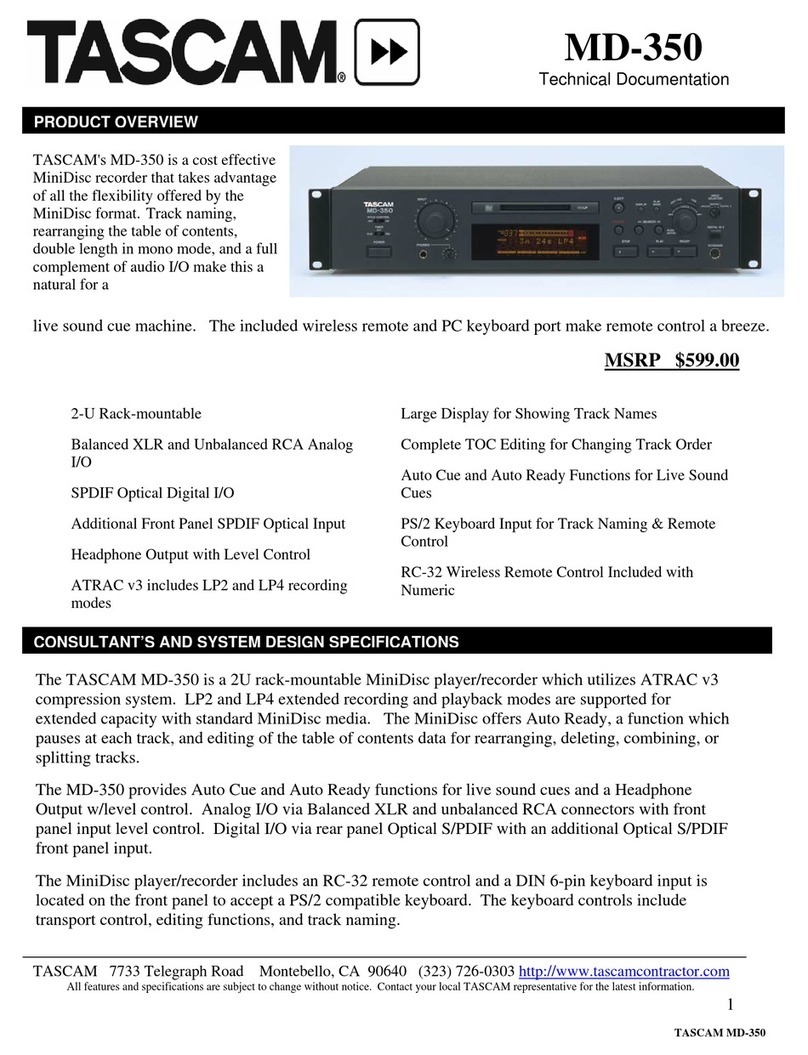Audio
System: MiniDisc digital audio system
Laser: Semiconductor laser (=780 nm)
Sampling frequency: 44.1 kHz
Coding: Adaptive Transform Acoustic Coding
(ATRAC)
No. of channels: 2 (left and right, stereo)
1 (monaural)
Frequencyresponse: 20 Hz-20 kHz (+0 dB, -6dB)
Wowand flutter: Belowmeasurable limit
General
Input terminal
OPT/LINE IN jack
Impedance: 47k
Input level: SENS H:178mV
SENS L:500mV
MIC jack
Impedance: 600
Input level: 0.4mV
Output terminal
Output Jack: Phones, 22
Power output: 3.5 mW+3.5 mW
Power supply
Rechargeable battery: DC 1.2V
(included rechargeable battery)
Battery: DC 1.5V (One LR6, AA, UM-3 battery)
AC adaptor: DC 1.8V (included AC adaptor)
Dimensions (WxHxD)
Cabinet dimensions: 78.2x71.6x16.8
mm
incl.projecting parts: 79.9x73.6x18.6
mm
Weight: 120 g (with
battery)
94 g (without battery)
Playtime
(When used in hold mode, at 25°C, on a flat, stable surface)
Batterytype:PlaytimeRecord time
Rechargeable: About 15 hoursAbout 7 hours
Panasonic alkaline: About 21 hoursAbout 3 hours
Both together: About 38 hoursAbout 15 hours
Charger
Input: AC 220 V (GH) / AC220-230 V (EG) /
AC 230-240V (EB), 50/60 Hz 8W
Recharging time: About 3 hours
2

